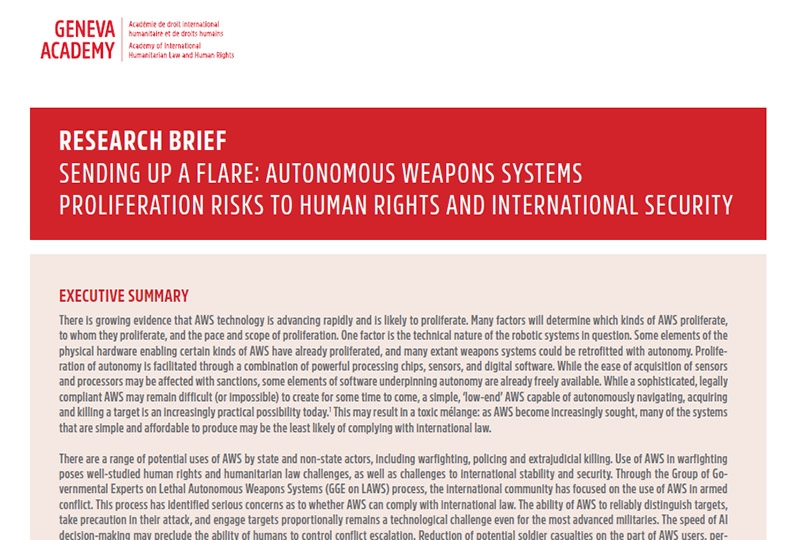21 August 2024
Our latest research brief, Sending Up a Flare: Autonomous Weapons Systems Proliferation Risks to Human Rights and International Security, authored by Research Consultant Leif Monnett, examines the proliferation of autonomous weapons systems (AWS), and consequent risks to security and human rights.
AWS have been the subject of international processes since 2014. Proliferation risks, however, remain under-addressed in international fora. In response, this research examines factors determining which kinds of AWS proliferate, to whom they proliferate, and the pace and scope of proliferation. It identifies international security and law risks from the proliferation of AWS to state and non-state actors, including risks to civil society.
As explained by Leif Monnett, 'The proliferation of AWS to state and non-state actors threatens international security and poses serious risks to a wide range of human rights. Certain AWS technologies facilitate the killing or maiming of vulnerable people, or groups of people. The inherent difficulty of attributing AWS attacks may undermine accountability: a core principle underpinning international law.'
A key conclusion is that international action to address this potentiality is urgently needed. Head of Research and Policy Dr. Erica Harper underscored the report’s conclusion that 'The international community must seize the window of opportunity created by a growing awareness around AWS proliferation, and take proactive and concrete action to evaluate and mitigate the threats to human rights.' Specific policy recommendations include: evaluating the feasibility of a monitoring program to track the development and use of AWS; convening an interdisciplinary expert working group to identify best practices to reduce the vulnerability of high-risk targets; prohibiting the development of AWS which use technology facilitating targeted killing; and calling upon states to pledge to refrain from the domestic use of AWS.







